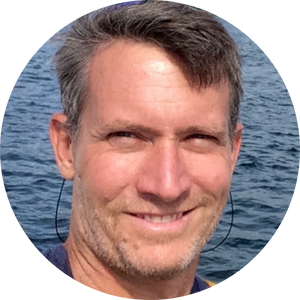Donald Behringer
Professor, Marine and Disease Ecology
Florida SeaGrant Affiliate Faculty
Research in Don Behringer's lab focuses on marine disease ecology and epidemiology, the resilience and restoration of marine communities impacted by human or natural disturbances, and the ecology and behavior of marine invertebrates.
Courses Taught
| Identifier | Course Name |
|---|---|
| FAS 4270/6272 | Marine Ecological Processes |
| FAS 4932/5276 | Field Ecology of Aquatic Organisms |
| FAS 4932/6932 | UF in Cuba: Tropical Marine & Island Ecology |
-
Research Interests
Disease ecology and epidemiology As the global human population grows ever larger – predicted to reach 9 billion by 2050 – there will be increasing pressure on fisheries as important sources of food for the world. Fisheries are being subjected to stressors from over-exploitation, ocean warming, ocean acidification, coastal eutrophication, and habitat degradation. Rising from among these threats is an awareness that infectious disease can emerge as a consequence of environmental and biological stress and can sometimes drive ecosystem change. The rising profile of infectious disease is also concomitant with a broader realization that the parasites responsible for disease are themselves important members of communities. Thus, critical for understanding any marine population, community, or ecosystem is a comprehensive understanding of the relationships between hosts, parasites, and abiotic and biotic stress in those systems.
Marine community resilience and restoration Disease and environmental change can also impact foundational organisms, such as sponges, and these impacts can have negative feedbacks on disease for important species that rely on them (e.g., spiny lobsters and stone crabs). Here, Don's lab focuses on hard-bottom communities in the Florida Keys with the aim of understanding the consequences of recurring cyanobacteria blooms on sponge habitat loss, implications for disease, and the potential for restoration. This work on Florida benthic habitats and invertebrates also led to a new research focus in the lab on the multitude of invertebrates in the Florida Marine Life (ornamental) fishery. Little attention has been paid to the many organisms in this fishery and they have been managed with limited information. At low levels of exploitation this situation is not problematic, but as exploitation has intensified, it is critical to have baseline information to manage them sustainably. Don and his graduate students have made great strides in determining the life history, population structure, and ecology for several of the most heavily exploited species, including the peppermint shrimp, the blue-legged hermit crab, and the Florida sea cucumber.

FISHERIES & AQUATIC SCIENCES
Affiliated Institutions
-
Education
- PhD, Ecological Sciences, Old Dominion University, 2003
- BS, Zoology, University of Florida, 1991
